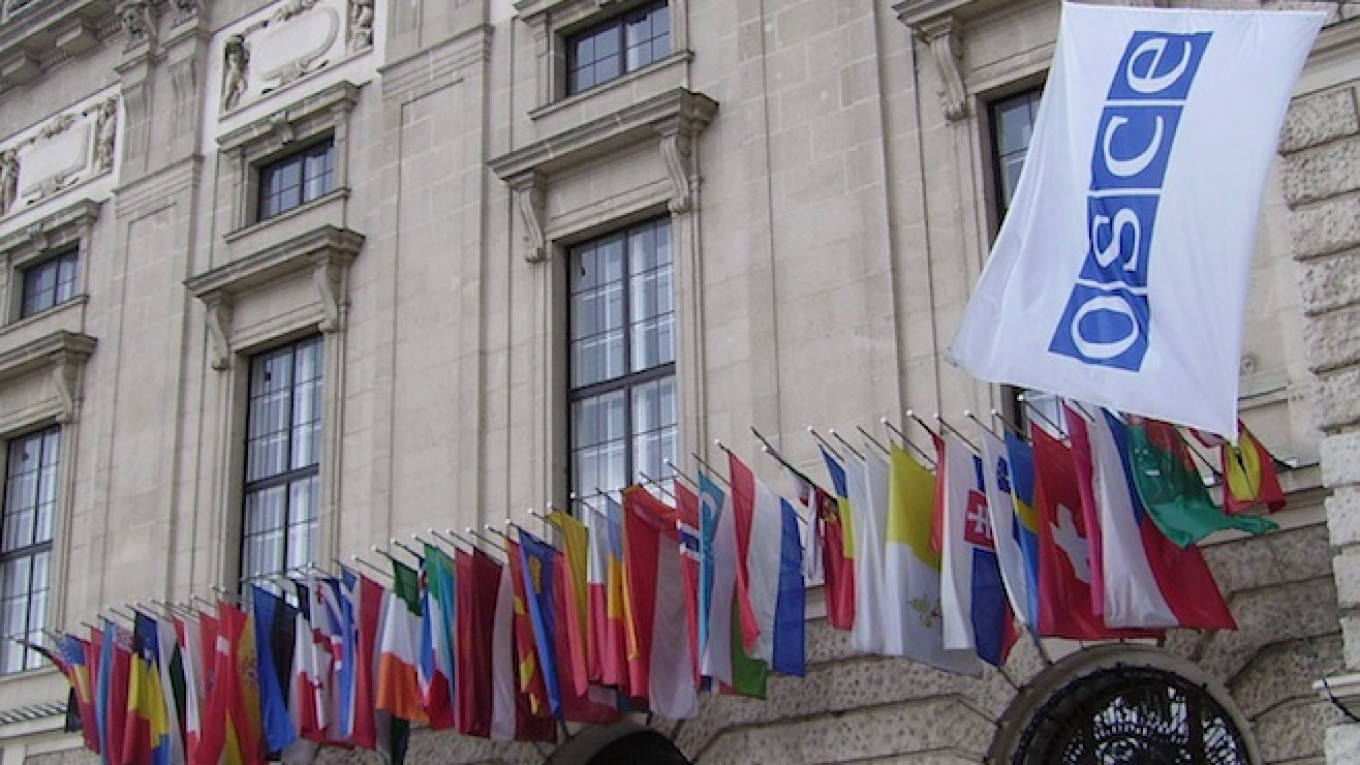BAKU — Azerbaijan has given the Organization for Security and Cooperation in Europe one month to halt its operations in the former Soviet republic, months before a parliamentary election this autumn, the OSCE said Tuesday.
The order to shut down came from the Foreign Ministry, and it is "under consideration," said Rashad Huseynov, a spokesman for the OSCE office in Baku. The Foreign Ministry gave no explanation for the decision.
Observers from the OSCE have criticized all the previous elections in the country. More broadly, both the OSCE and various human rights groups have accused Azerbaijan of muzzling dissent and jailing opponents, charges it denies.
"Practically all independent media representatives and media NGOs" in Azerbaijan "have been purposefully persecuted under various, often unfounded and disturbing charges," the Vienna-based OSCE's media freedoms representative, Dunja Mijatovic, said last November.
Several rights activists and journalists were sentenced to prison terms this year and last in Azerbaijan on charges including illegal business activity and hooliganism. Their lawyers have dismissed their trials as politically motivated.
But Aidyn Mirzazade, a lawmaker from the ruling party, denied any link between the closing of the OSCE office and criticism over Azerbaijan's human rights record.
"Human rights is not part of the OSCE mandate," he said.
The OSCE office in Baku was downgraded to the office of a "project coordinator," reportedly at Azerbaijan's request, in January 2014.
"The OSCE office closure in Baku is linked to the fact that this office has fulfilled all of its goals, and I don't see anything strange in this decision," Mirzazade said.
Energy-rich Azerbaijan, governed by President Ilham Aliyev since he succeeded his father in 2003, has been courted by the West because of its role as an alternative to Russia in supplying oil and gas to Europe.
A Message from The Moscow Times:
Dear readers,
We are facing unprecedented challenges. Russia's Prosecutor General's Office has designated The Moscow Times as an "undesirable" organization, criminalizing our work and putting our staff at risk of prosecution. This follows our earlier unjust labeling as a "foreign agent."
These actions are direct attempts to silence independent journalism in Russia. The authorities claim our work "discredits the decisions of the Russian leadership." We see things differently: we strive to provide accurate, unbiased reporting on Russia.
We, the journalists of The Moscow Times, refuse to be silenced. But to continue our work, we need your help.
Your support, no matter how small, makes a world of difference. If you can, please support us monthly starting from just $2. It's quick to set up, and every contribution makes a significant impact.
By supporting The Moscow Times, you're defending open, independent journalism in the face of repression. Thank you for standing with us.
Remind me later.


